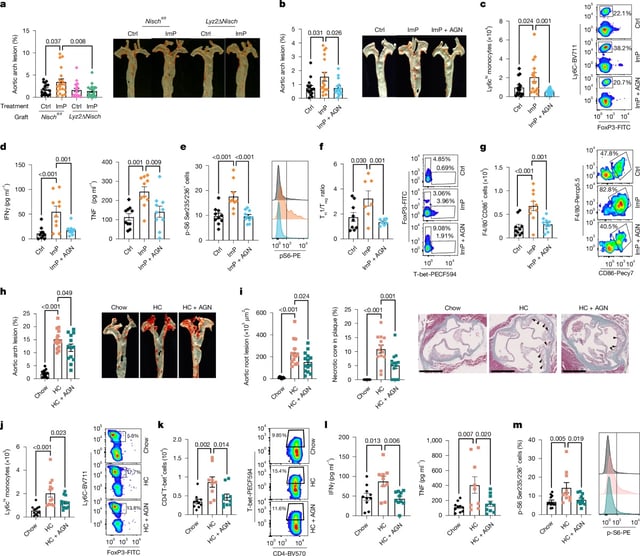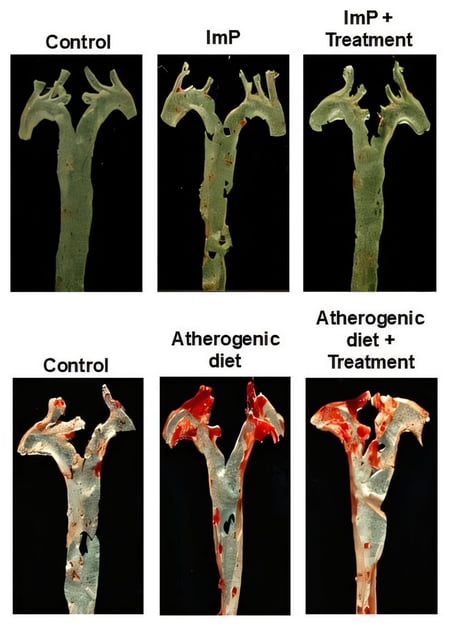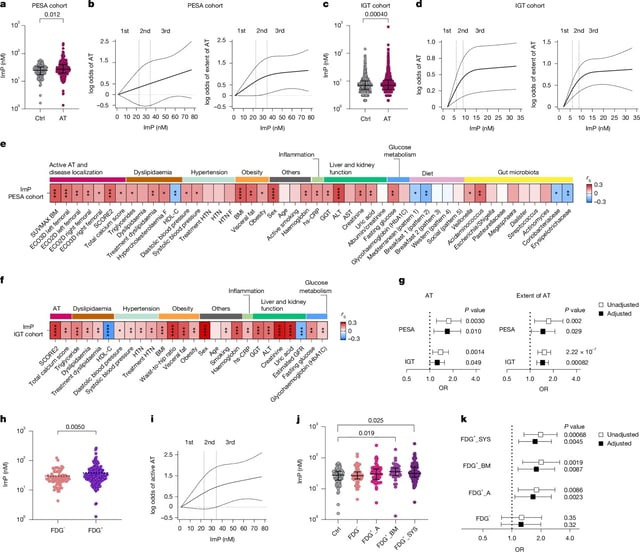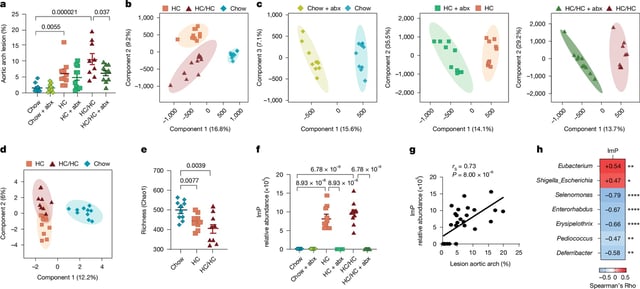Overview
- A Nature study led by CNIC identified imidazole propionate, a metabolite uniquely produced by gut bacteria, as a blood marker of early active atherosclerosis in asymptomatic individuals
- In mouse models, administering imidazole propionate activated the imidazoline receptor type 1 (I1R), triggering systemic inflammation and accelerating arterial plaque formation
- Pharmacological blockade of I1R in high–cholesterol diet mice prevented imidazole propionate–induced plaque development and slowed disease progression
- Blood levels of imidazole propionate offer a simpler diagnostic tool for detecting active atherosclerosis compared with advanced imaging techniques
- CNIC researchers are advancing I1R inhibitor candidates and planning combination studies with cholesterol-lowering drugs to enhance personalized cardiovascular treatments



